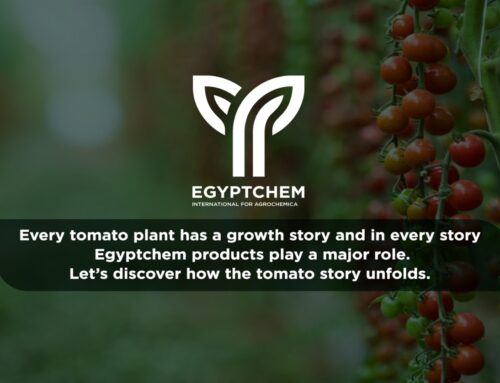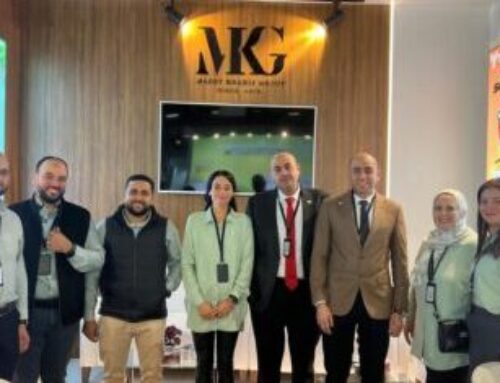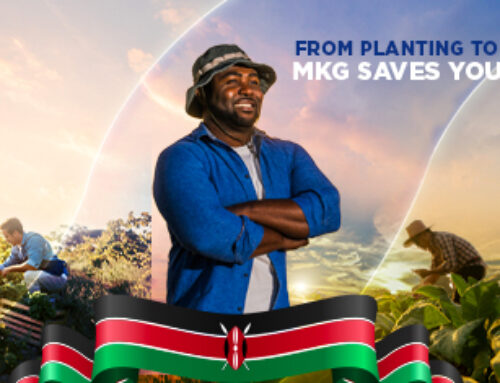
March 13, 2024
Cultivating Tomorrow’s Harvest: An Introduction to Sustainable Farming Practices
In our world today, where the environment is changing and the demand for food is growing, there’s a greater need than ever for farming methods that are sustainable. Sustainable agriculture focuses on taking care of the environment, being socially responsible, and making sure farming continues to make economic sense. This article will look at why sustainable agriculture is important and highlight some eco-friendly farming methods that are changing how we grow food. We’ll also see how the Magdy Khamis Group (MKG) is helping in this effort by introducing innovative solutions that support better farming practices.
The Importance of Sustainable Agriculture
Sustainable agriculture promotes farming practices that prioritize maintaining healthy and resilient ecosystems, safeguarding natural resources, and supporting the well-being of both farmers and communities. Adopting sustainable farming methods helps tackle environmental issues like soil degradation, water scarcity, biodiversity loss, and climate change. By embracing these practices, we can ensure food security for both present and future generations.
Taking Care of Environment Nature
Sustainable farming methods help protect the environment by:
- Using fewer man-made chemicals for fertilizers and pesticides, which saves water and energy.
- Decreasing pollution and gases that cause the greenhouse effect, helping to keep the soil healthy.
- Supporting a variety of plant and animal life and letting nature control pests, making the environment stronger and better able to handle changes.
Social Responsibility
Sustainable agriculture seeks to create a farming system that values the well-being of farmers, workers, and rural communities. It aims to ensure fair access to resources, land, and market opportunities for all participants. By promoting ethical labor practices, supporting small-scale farming, and investing in community development, sustainable farming enhances social equity and improves the livelihoods of rural communities.
Economic Viability
Sustainable farming methods offer long-term economic benefits while benefiting the environment and society. These methods increase profitability and resilience for farmers by optimizing resource use, cutting input costs, and improving crop resilience to climate variations. As a result, farmers can better withstand market fluctuations and external challenges.
Eco-Friendly Farming Methods
- Conservation Agriculture
Conservation farming helps make farming sustainable by focusing on ways to keep soil healthy and prevent it from washing away. This means disturbing the soil as little as possible, keeping it covered with plants all year, and growing different crops in rotation. When farmers use these methods and take care of leftover plant parts, like stalks and leaves, they can make the soil better at holding water and nutrients, and store more carbon, while also protecting the environment.
2.Maintaining Soil Health for Sustainability
Keeping the soil healthy is crucial for sustainable farming. When the soil is healthy, it helps crops grow better and protects the environment. Our brand Savilera has a range of products called Solvilera that are made to improve the soil. These products make the soil easier to work with, prevent it from getting too compact, and help it hold the right amount of air and water. They also increase the amount of organic matter in the soil and make it more alive with helpful microbes. Some of the products in the Solvilera range include Solvilera 20, Solvilera Max, 80 WSP Solvilera, CaO Solvilera, and Fe Solvilera.
- Precision Agriculture
High-tech farming practices like GPS-controlled machinery, remote area monitoring, and variable-rate application systems help farmers optimize resource allocation, reduce waste, and increase crop yields. By delivering inputs like water, fertilizers, and pesticides to specific crops and soil conditions, farmers can get the most out of these resources and reduce their impact on the environment.
MKG’s Innovative Technology for Sustainable Agriculture
MKG is at the forefront of sustainable agriculture with its cutting-edge technology known as SAF (Special Absorption Formula), developed by EGYPTCHEM INTERNATIONAL. SAF is a revolutionary system that enhances the absorption of foliar nutrients by plants through their leaves at a rate 200% more efficient than traditional methods.
SAF technology acts as a carrier for nutrients, allowing them to be transferred into the plant and distributed throughout its cells. This technology bypasses the need for soil fertility as nutrients are directly delivered to the plant, resulting in more efficient and cost-effective nutrient absorption. Additionally, SAF ensures that nutrients are fully delivered to the plant in under two hours after application, reducing the risk of nutrient loss and maximizing effectiveness.
One of the key benefits of SAF is its ability to deliver a broad spectrum of nutrients in a single application, helping to prevent potential crop deficiency issues before they occur. Moreover, SAF facilitates nutrient absorption through both the leaf wall and stomata, ensuring nutrients are safely transferred into plant cells for immediate use.
With SAF technology, MKG’s products offer a unique advantage in improving plant productivity and maximizing crop yield. By enhancing nutrient absorption and photosynthetic efficiency, SAF contributes to sustainable agriculture practices that support environmental stewardship and long-term agricultural viability.
Integrated Pest Management (IPM)
MKG combines the latest innovations and scientific expertise to create and provide sustainable farming solutions, emphasizing bio-based fertilizers and eco-friendly pesticides. By providing farmers with cutting-edge technology and resources, MKG promotes sustainable farming practices to increase resilience in the face of climate change and market volatility, ultimately enhancing agricultural sustainability.
Conclusion: Cultivating a Sustainable Future
In the pursuit of sustainable agriculture, Magdy Khamis Group pioneers a path where food production practices coexist harmoniously with environmental conservation, ensuring the nourishment of communities and the longevity of the food system for future generations. Through innovation, dedication to sustainability, and the empowerment of farmers, the group strives to achieve a sustainable future where agriculture flourishes in harmony with the planet, benefiting all parties involved and yielding abundant harvests.


